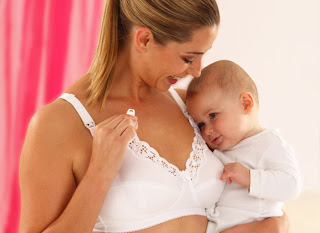For many women in western society there is an unsaid opinion that we should stop breastfeeding by the time our babies hit 1 year old. It's the raised eyebrow with the accompanying "Oh, you're still breastfeeding?"
It's fact that the World Health Organisation actually recommends that women continue to breastfeed their children up to two years or more!
We say, feed as long as you like!
Ten Facts Why We Love Breastfeeding
1. Breastfeeding reduces the risks of breast and ovarian cancer later in life, and helps women return to their pre-pregnancy weight faster.
2 WHO says adults who were breastfed as babies often have lower blood pressure
and lower cholesterol than those who weren't.
3 Across the world, less than 40 per cent of babies under the age of six
months are exclusively breastfed.
4 Breastfeeding burns approximately 500 calories a day.
5 There are more than 4,000 species of mammal, and all breastfeed their young.
6 According to a survey carried out by the Office for National Statistics in
2005, 35 per cent of British babies were being exclusively breastfed at one
week, 21 per cent at six weeks, seven per cent at four months and three per
cent at five months.
7 The same survey said 78 per cent of new mothers in Britain attempt breastfeeding, compared with 99 per cent in Norway, 91 per cent in Italy and 84 per cent in Spain.
8 In the UK, breastfeeding is more common among mothers who remained in education beyond the age of 18: 91 per cent, compared with 59 per cent of those who left school at the age of 16. (suggests where we really need to focus our efforts then...)
9. Poop is less smelly (if any in some cases)
10 It's less hassle! On tap, ready to go anywhere, anytime




